38 health claims on food labels are standardized and regulated
Health Claims - Canada.ca The Food Directorate of Health Canada is responsible for the development of policies, regulations and standards that relate to the use of health claims on foods. Health claims on foods may help people make informed decisions about food choices provided they are truthful and not misleading. Function claims - Health claims on food labels - Food labels - Canadian ... Function claims (definition) relate to the effects that a food has on the normal functions of the body. They are based on the role that the food or the food constituent plays when consumed at levels consistent with normal dietary patterns. Function claims also contain two subcategories of claims: Nutrient Function Claims Probiotic Claims
Labeling & Nutrition Guidance Documents & Regulatory ... The .gov means it’s official. Federal government websites often end in .gov or .mil. Before sharing sensitive information, make sure you're on a federal government site.
Health claims on food labels are standardized and regulated
Label Claims for Food & Dietary Supplements | FDA Among the claims that can be used on food and dietary supplement labels are three categories of claims that are defined by statute and/or FDA regulations: health claims, nutrient... Health claims on food labels - Food labels - Canadian Food Inspection ... A health claim is any representation in labelling or advertising that states, suggests, or implies that a relationship exists between the consumption of a food and health. All aspects of food labels and advertisements contribute to the overall impression made by a food product, including health claims. Gluten and Food Labeling | FDA - U.S. Food and Drug Administration Since 2014, the U.S. Food and Drug Administration (FDA) has required that claims on food labels that a food contains no gluten meet a clear standard that assures consumers that “gluten-free ...
Health claims on food labels are standardized and regulated. Health Claims on Food Labels - Consumer Reports Specifically, grass-fed meat and dairy has a more healthful ratio of omega-6 polyunsaturated fatty acids to omega-3s. Too much omega-6 fat in your diet can cause inflammation, which may be a ... PPIC Statewide Survey: Californians and Their Government Oct 27, 2022 · Key Findings. California voters have now received their mail ballots, and the November 8 general election has entered its final stage. Amid rising prices and economic uncertainty—as well as deep partisan divisions over social and political issues—Californians are processing a great deal of information to help them choose state constitutional officers and state legislators and to make ... Nutrient Claims on Food Labels - Clemson University Lean Claims. Lean. Contains less than 10 grams total fat, 4.5 grams or less saturated fat, and less than 95 milligrams cholesterol. Extra lean. Contains less than 5 grams total fat, less than 2 grams saturated fat, and less than 95 milligrams cholesterol. *compared to the reference, or regular, food this would replace. health claims and food labels Flashcards | Quizlet Further, health claims are limited to claims about disease risk reduction, and cannot be claims about the diagnosis, cure, mitigation, or treatment of disease. -required to be regulated by FDA -2 essential components: food/ingredient/supplement & disease/condition -includes written statements and symbols (heart= good for heart disease)
FDA Proposes to Update Definition for "Healthy" Claim on Food Labels Having a standardized graphic to show that a food qualifies for the "healthy" claim would further support the FDA's goal of helping consumers more easily identify packaged food products... Health Claims on Food Labels - Kaiser Permanente Search the Healthwise Knowledgebase . Help: Healthwise Index: Topic Contents. Topic Overview; Related Information; Credits; This information does not replace the advice of a docto Nutrition and Health Claims - Food Safety Union rules on nutrition and health claims have been established by Regulation (EC) No 1924/2006.The Regulation started to apply on 1 July 2007. This regulation is the legal framework used by food business operators when they want to highlight the particular beneficial effects of their products, in relation to health and nutrition, on the product label or in its advertising. Health claims on food labels - Food labels - Canadian Food Inspection ... Children under two years of age. Disease risk reduction claims and therapeutic claims. Nutrient function claims for children under two years of age. Testimonials and guarantees regarding vitamin and mineral nutrients. Additional information. Schedule 1 (subsection 1 (1)) - included natural health product substances.
Regulations Amending the Natural Health Products Regulations ... Jul 06, 2022 · In these jurisdictions, facts tables containing important information are already required for similar products that make health claims. For example, in the U.S., a product regulated as a food requires a Nutrition Facts table, a dietary supplement requires a Supplement Facts table, and a drug requires a Drug Facts table. Use of the term prebiotic(s) - Health claims on food labels - Food ... Health claims on food labels Use of the term "prebiotic(s)" The term "prebiotic(s)" and similar representations (for example, "stimulates the growth of friendly intestinal microflora", "promotes healthy/beneficial bacteria in the large intestine") on food labels and in advertising that suggest a food confers a health benefit are considered to be implied health claims. Chp. 4 Food regulation and standards Flashcards | Quizlet The FDA allows health claims on food labels for A) vitamin C and the common cold. B) fruits, vegetables, and grain products and cancer. C) fats and weight reduction. D) dairy foods and coronary heart disease. B 7. Daily values are provided on nutrition labels for two calorie levels. What are the two calorie levels? A) 1,500 and 2,000 Background Information: Dietary Supplements - Consumer Drug manufacturers may claim that their product will diagnose, cure, mitigate, treat, or prevent a disease. Such claims may not legally be made for dietary supplements. The label of a dietary supplement or food product may contain one of three types of claims: a health claim, nutrient content claim, or structure/function claim. Health claims ...
Federal Register :: National Bioengineered Food Disclosure ... Dec 21, 2018 · Section 66.3(a) requires that labels for bioengineered food must bear a BE disclosure consistent with the requirements of part 66. Section 66.3(a)(2) prohibits labels for food that is not bioengineered from bearing a BE disclosure unless the food may bear a voluntary disclosure under § 66.116, based on records maintained under § 66.302.
Legal Guide to Health Claims on Food | Law@Dayton Legal Guide to Health Claims on Food. March 12, 2021. Healthy, all-natural, organic, low-fat. These terms appear on food labels everywhere, but only some of them have strict definitions and regulations. As nutrition guidelines change and more people are invested in how they nourish their bodies, digesting the information on food packaging ...
Food Packaging Claims | American Heart Association It's important to understand what these claims mean so you can make informed decisions about the food you buy for yourself and your family. There are three categories of claims defined by statute and/or FDA regulations that can be used on food and dietary supplement labels: health claims, nutrient content claims, and structure/function claims.
Label Claims for Conventional Foods and Dietary Supplements there are three ways in which fda exercises its oversight in determining which health claims may be used on a label or in labeling for a conventional food or dietary supplement: 1) the 1990...
Food labelling and packaging: Nutrition, health claims and supplement ... Nutrition, health claims and supplement labelling Nutrition labelling You must follow nutrition labelling information rules for all pre-packed products unless both of the following apply:...
Authorized Health Claims That Meet Significant Scientific Agreement Authorized Health Claims That Meet the Significant Scientific Agreement (SSA) Standard Authorized health claims in food labeling are claims that have been reviewed by FDA and are...
Health Claims on Food Labels - LabelCalc Health claims, according to the FDA, are statements about the relationship between a food product or ingredient and a reduced risk of disease or a health condition. Basically, the FDA distinguishes two kinds of health claims: "authorized" and "qualified." Authorized Health Claims: Claims that have significant scientific agreement (SSA ...
2 History of Nutrition Labeling - NCBI Bookshelf Up to the late 1960s, there was little information on food labels to identify the nutrient content of the food. From 1941 to 1966, when information on the calorie or sodium content was included on some food labels, those foods were considered by the Food and Drug Administration (FDA) to be for "special dietary uses," that is, intended to meet particular dietary needs caused by physical ...
Foods or natural health products (NHP) - Health claims on food labels ... Health claims on food labels Foods or natural health products (NHP) Natural product number; In order to understand how health claims are regulated in Canada, one must first examine the definitions for a food and natural health products. The term "food" (definition) is defined in the Food and Drugs Act (FDA).
Nutrition and health claims: guidance to compliance with Regulation (EC ... 1.6 Nutrition and health claims for food being placed on the market within the EU from 1 January 2021 Regulation (EC) No. 1924/2006 sets out the legal framework for businesses wanting to...
Questions and Answers on Health Claims in Food Labeling 4. Has the FDA ever revoked an authorized health claim? The FDA has authorized 12 health claims since 1990. On October 31, 2017, the agency issued a proposed rule to revoke the regulation that ...
FDA proposes updates to 'healthy' claim on food packages | CNN About 5% of foods are labeled as being healthy, which is a regulated claim. Foods that make the claim have limits on individual nutrients like fat, saturated fat, cholesterol and sodium, and they ...
Small Businesses & Homemade Cosmetics: Fact Sheet | FDA Other country of origin labeling is regulated by U.S. Customs and Border Protection (see“Chapter 13-Country of Origin Marking”). You may wish to work with a labeling consultant.
FDA Proposes New 'Healthy' Claim on Food Labels FDA Proposes New 'Healthy' Claim on Food Labels. Sept. 28, 2022. Its food group-based approach continues prohibitions but allows salmon and nuts to be considered healthy. The FDA today (Sept. 28) issued a proposed rule to update the definition of the "healthy" claim on food & beverage packaging. Interested parties have about three ...
Nutrition, health and related claims - Food Standards Health claims You can only base health claims on food-health relationships that have been substantiated according to Standard 1.2.7. All health claims must be supported by scientific evidence to the same degree of certainty, whether they are pre-approved by us or self-substantiated by food businesses. General level health claims
Nutrition facts label - Wikipedia The Ministry of Health and Family Welfare had, on September 19, 2008, notified the Prevention of Food Adulteration (5th Amendment) Rules, 2008, mandating packaged food manufacturers to declare on their product labels nutritional information and a mark from the F.P.O or Agmark (Companies that are responsible for checking food products) to enable ...
CH 2 - NUTRITION Flashcards | Quizlet Structure/function claims on dietary supplement labels are not regulated as rigorously as health claims. TRUE Serving sizes are standardized on food labels to allow consumers to compare products. TRUE Gender, age and activity level all affect your energy needs (EER). TRUE The Tolerable Upper Intake (ULs)
5 Understanding Food Labels and Health Claims - Maricopa Health Claims & Foods To keep companies from making false claims, the FDA provides food manufacturers' regulations in putting labels on packages that promote health. There are three levels of health claims: A health claim is supported by scientific evidence. An example is "reduces heart disease."
Aromatherapy | FDA - U.S. Food and Drug Administration Such claims are sometimes made for products such as soaps, lotions, and massage oils containing “essential oils” and marketed as “aromatherapy.” The fact that a fragrance material or other ...
Health claims | EFSA - European Food Safety Authority One of the key objectives of this Regulation is to ensure that any claim made on a food label in the EU is clear and substantiated by scientific evidence. Regulation 1924/2006 on nutrition and health claims made on foods Commission Regulation No 353/2008 establishing implementing rules for applications for authorisation of health claims
Gluten and Food Labeling | FDA - U.S. Food and Drug Administration Since 2014, the U.S. Food and Drug Administration (FDA) has required that claims on food labels that a food contains no gluten meet a clear standard that assures consumers that “gluten-free ...
Health claims on food labels - Food labels - Canadian Food Inspection ... A health claim is any representation in labelling or advertising that states, suggests, or implies that a relationship exists between the consumption of a food and health. All aspects of food labels and advertisements contribute to the overall impression made by a food product, including health claims.
Label Claims for Food & Dietary Supplements | FDA Among the claims that can be used on food and dietary supplement labels are three categories of claims that are defined by statute and/or FDA regulations: health claims, nutrient...








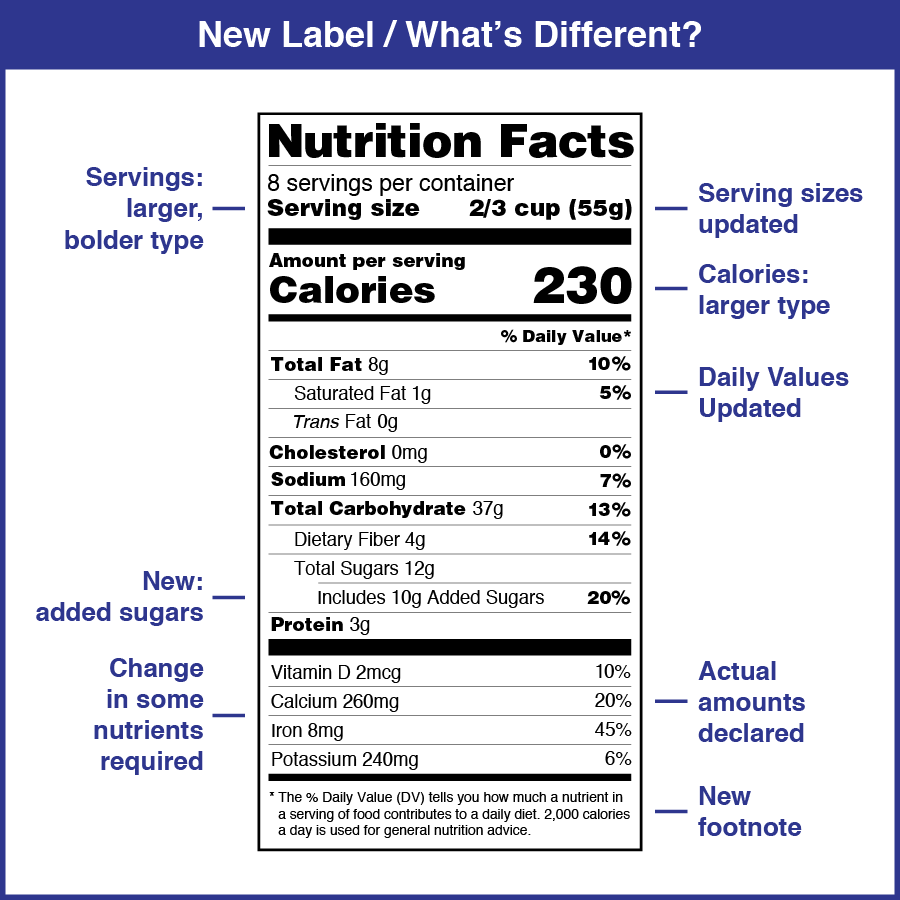
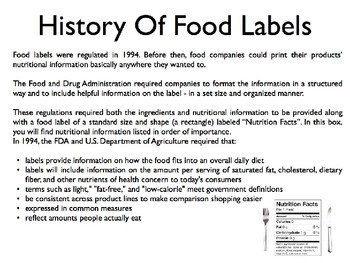
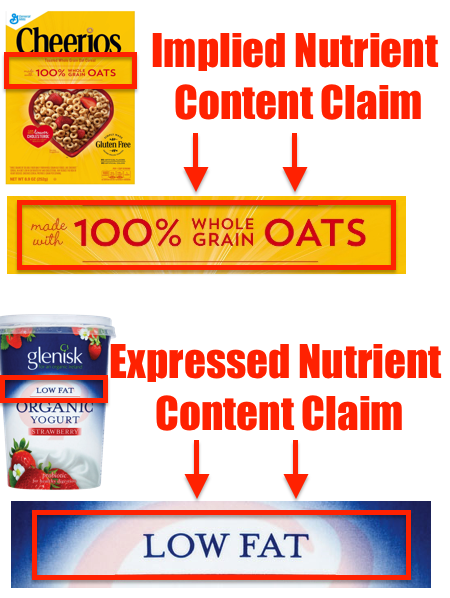


![PDF] Nutrition labels and health claims: the global ...](https://d3i71xaburhd42.cloudfront.net/f8e40d7b317600da54b78934835b7ec21cd9b57d/26-Figure1-1.png)
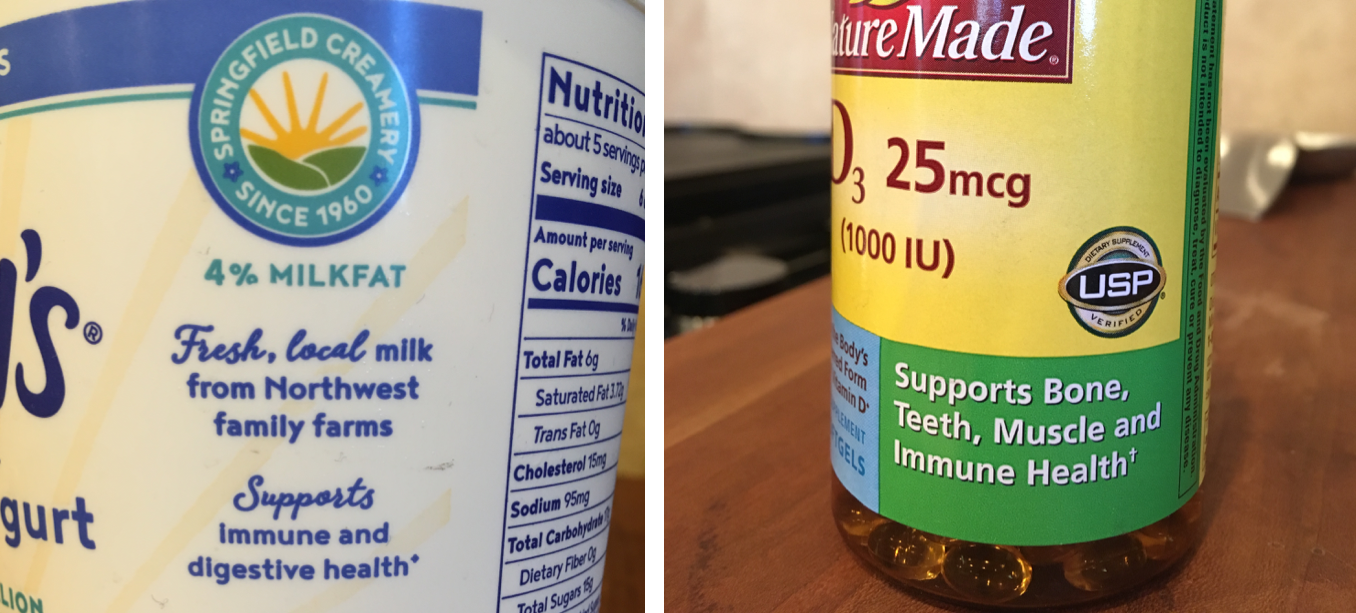





![PDF] Nutrition marketing on processed food packages in Canada ...](https://d3i71xaburhd42.cloudfront.net/6273f6117a666d80f88bc9641ac54dbfc8f285c5/2-Table1-1.png)
:max_bytes(150000):strip_icc()/oreo-sugar-free-400x400-1679202a775547cabf7be9d8385198a6.jpg)
:no_upscale()/cdn.vox-cdn.com/uploads/chorus_asset/file/22693769/56517473.jpg)
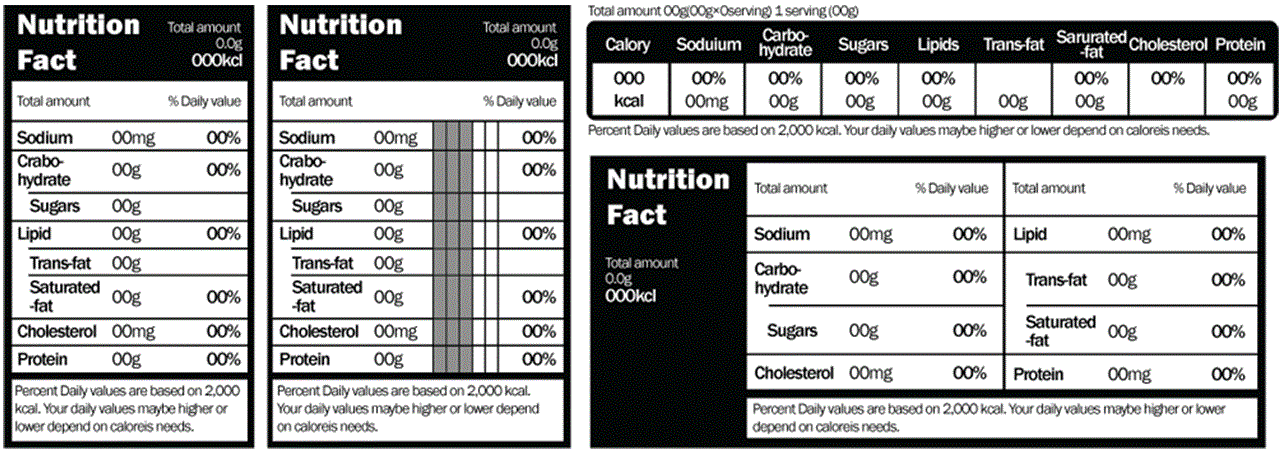









Post a Comment for "38 health claims on food labels are standardized and regulated"